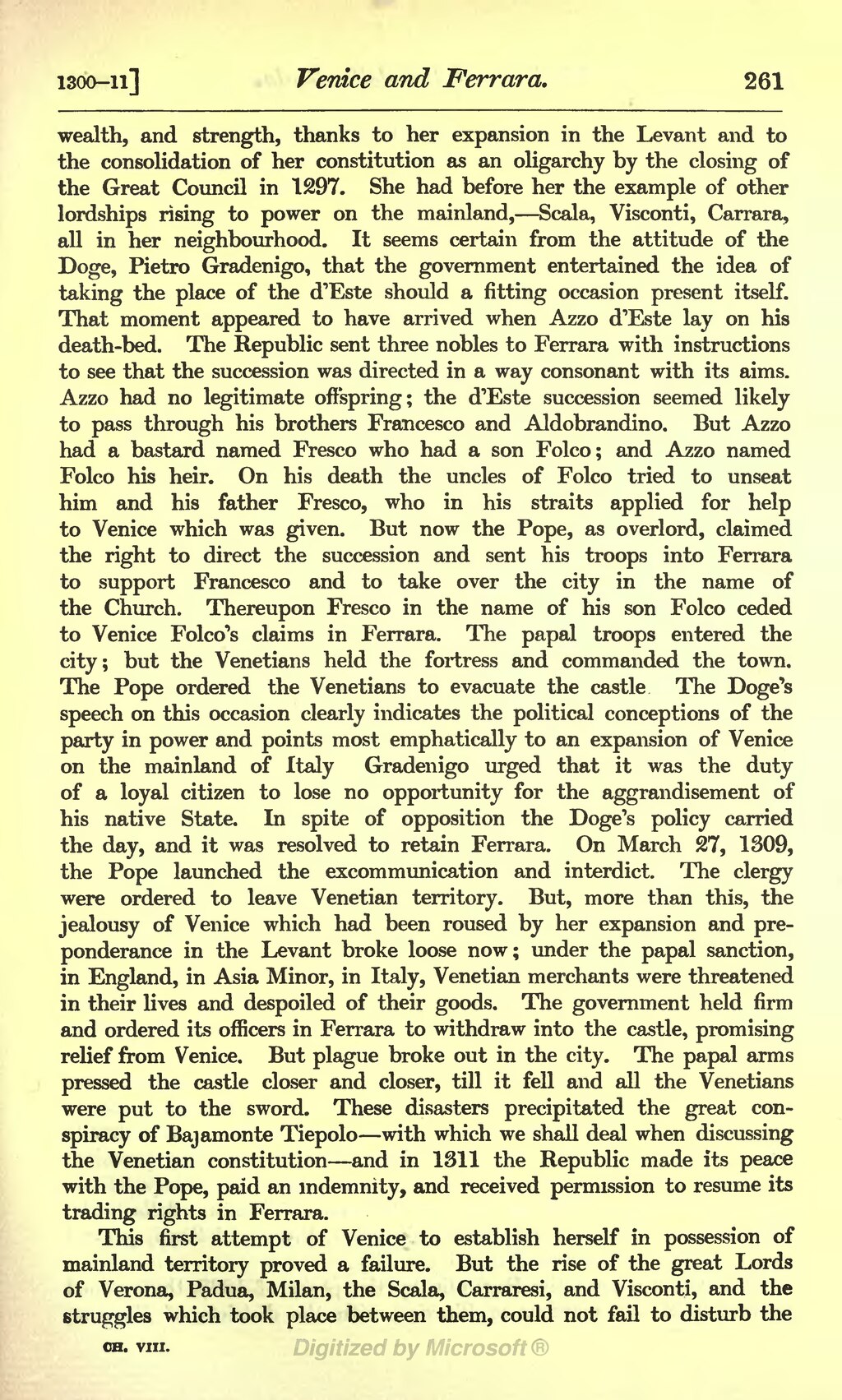wealth, and strength, thanks to her expansion in the Levant and to the consolidation of her constitution as an oligarchy by the closing of the Great Council in 1297. She had before her the example of other lordships rising to power on the mainland,—Scala, Visconti, Carrara, all in her neighbourhood. It seems certain from the attitude of the Doge, Pietro Gradenigo, that the government entertained the idea of taking the place of the d'Este should a fitting occasion present itself. That moment appeared to have arrived when Azzo d'Este lay on his death-bed. The Republic sent three nobles to Ferrara with instructions to see that the succession was directed in a way consonant with its aims. Azzo had no legitimate offspring; the d'Este succession seemed likely to pass through his brothers Francesco and Aldobrandino. But Azzo had a bastard named Fresco who had a son Folco; and Azzo named Folco his heir. On his death the uncles of Folco tried to unseat him and his father Fresco, who in his straits applied for help to Venice which was given. But now the Pope, as overlord, claimed the right to direct the succession and sent his troops into Ferrara to support Francesco and to take over the city in the name of the Church. Thereupon Fresco in the name of his son Folco ceded to Venice Folco's claims in Ferrara. The papal troops entered the city; but the Venetians held the fortress and commanded the town. The Pope ordered the Venetians to evacuate the castle. The Doge's speech on this occasion clearly indicates the political conceptions of the party in power and points most emphatically to an expansion of Venice on the mainland of Italy. Gradenigo urged that it was the duty of a loyal citizen to lose no opportunity for the aggrandisement of his native State. In spite of opposition the Doge's policy carried the day, and it was resolved to retain Ferrara. On March 27, 1309, the Pope launched the excommunication and interdict. The clergy were ordered to leave Venetian territory. But, more than this, the jealousy of Venice which had been roused by her expansion and preponderance in the Levant broke loose now; under the papal sanction, in England, in Asia Minor, in Italy, Venetian merchants were threatened in their lives and despoiled of their goods. The government held firm and ordered its officers in Ferrara to withdraw into the castle, promising relief from Venice. But plague broke out in the city. The papal arms pressed the castle closer and closer, till it fell and all the Venetians were put to the sword. These disasters precipitated the great conspiracy of Bajamonte Tiepolo-with which we shall deal when discussing the Venetian constitution-and in 1311 the Republic made its peace with the Pope, paid an indemnity, and received permission to resume its trading rights in Ferrara.
This first attempt of Venice to establish herself in possession of mainland territory proved a failure. But the rise of the great Lords of Verona, Padua, Milan, the Scala, Carraresi, and Visconti, and the struggles which took place between them, could not fail to disturb the
